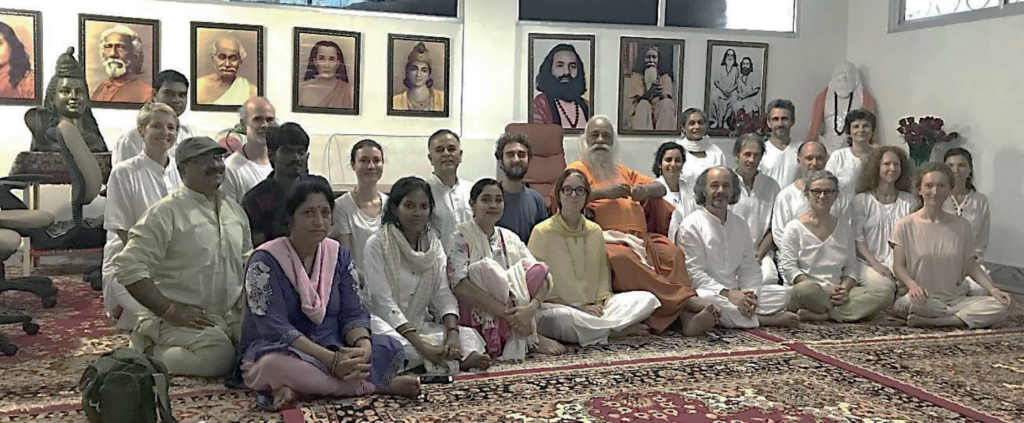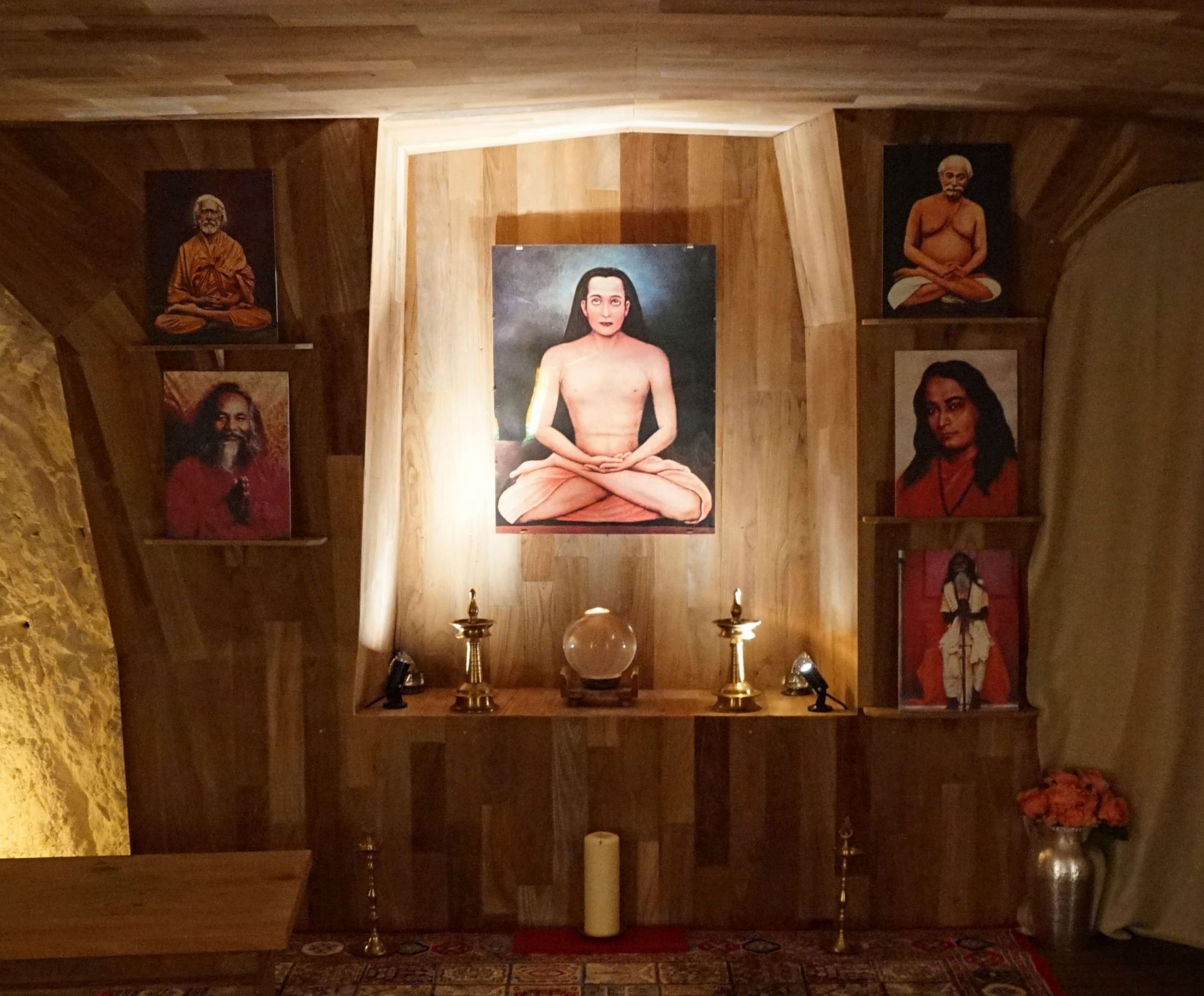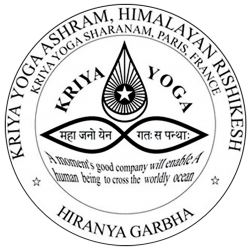Rishikesh Ashram Hiranyagarbha, 2018 August 8th
Swamiji spent few days in Ashram to give initiations and to welcome the group of French Kriyabans. Just before leaving Baba gathered the group for a short teaching time to time interrupted by a distribution of delicious laddhus.
Question : Baba, this morning before meditation you spoke about the state of prajnâ. Could you please say more about the link between the state of wisdom (prajnâ) and the the state of samâdhi ?
Answer : […] wisdom is still knowledge. Samâdhi is beyond. Even the savikalpa samâdhi is above the wisdom, and nirvikalpa samâdhi of course ! It is the womb you enter in […]
So, wisdom can be achieved, even by intellectual people, greatest scientists. But samâdhi is when everything has stopped, all is fisnished.
You try to remember these 3 slokas of the Yoga Sutras. Repeat with me :
« Deshabhandashchittasya dhâranâ » (III-2)
« Tatra pratyayaikatanata dhyânam » (III-3)
The first sloka is : « Deshabhandashchittasya dhâranâ »
It is called : one area, like one country, one part, this is called angadesha). Tied (bandha).
So, you are completly tied above. This is the barrier you cannot come down (Baba shows the upper part of his head). OK ?
Then you get comtemplation. You are comtemplating. About the samâdhi, all these ideas… Gone !
You have different idea. The idea of nothingness. Idea of nothingness.
How to imagine « nothing » ? It’s not so easy !
But after practicing so much, you reach […] you get the idea of nothingness. Before, below (he shows the lower part of his head and full body under the eyebrows), it’s impossible
When you went above, up to the 6th step (5th is done. You went to 6th step, dhâranâ) Then 7th step is dhyânâ. 8th is samâdhi.
Then you have idea of nothingness. Nothingness. Nothing, nothing, nothing… zero, zero… But you have to produce. It is not that you produce nothing ! Impossible ! You have to produce zero !
Understand ? Then you receive zero. You have to produce that zero. OK ? Then nothing, zero zero zero…
« pratyayaikatanata » in one rythm, all the time one rythm, one state : « dhyânam ». If you have that particular state all the time, what is that beating ? 0/0/0/0/0/0/0 … (he beats the rythm in his left palms with two fingers of his right hand. At the same moment the clock is ringing)… in one rythm all the time… as the clock is running one rythm, in same rythm, nothingness… then you enter into meditation, dhyânam. Then you enter into meditation… OK ?
Repeat with me : « Tadevârthamâtranirbhâsam svarûpashûnyamiva samâdhih » (III-3)
Svarûpa. This is rupa (he shows his body) OK ?
What is svarûpa ? Between ikâra and rakâra.
When you do : ikara rakara/ikara rakara… [he is showing the movement of the breath going up and down], then you find svarûpa, svayam (itself), when that svarûpa sunyam, that svarûpa, gone, finished. Then samâdhi… so wisdom is much below.
So that is that svarûpa we need to find that svarûpa. Yet we have no svarûpa, we have only rupa (he shows the body), this body.
So when this is finished, how you have to make svarûpa shûnyam. How you have to make that svarûpa, that form into formless, then samâdhi […]
People say when somebody is dead it is samâdhi, but no ! The person is already not even in svarûpa.
The person is already in the five senses with proper knowledge. Only this cannot be manifested because there is no form, no body. When that part will enter into one body, that is what we call « soul ». OK ? When that enters in one body then everything is blooming, is esprouted, all will come up. All characters, all qualities, all knowledge, good qualities, bad qualities, everything will come up. OK ?
But here this is after death and before life. After death and before life. But, in this body, in this life, you have to make that « svarûpa shûnyam » empty, completly, that « you » is empty, vanished. Not dead but vanished. Then you enter into samâdhi.
But to speak is too much you know. To do very simple, very little.
We have no patience to watch our breath, we have patience for everything else. Patiently we are doing so many things but no patience to watch our breath or to breath ourselves.
Merci (in French in the speech)
So have a good time. Enjoy your time. No need to look outside. Be here, inside, and meditate. OK ?
I will be always with you, people.
Rishikesh Ashram Hiranyagarbha, 2018 August 8th
Transcription Carole Meera Maa


